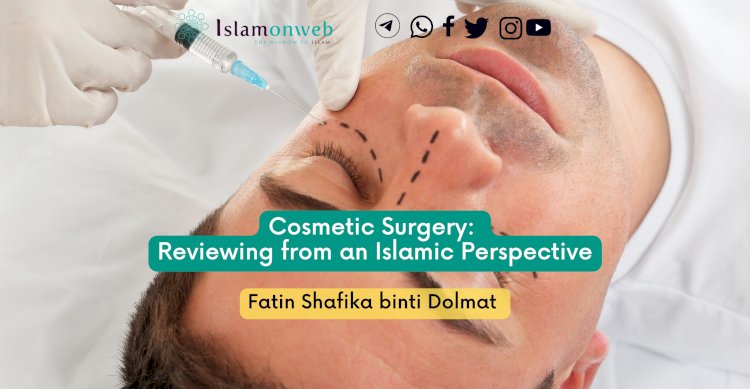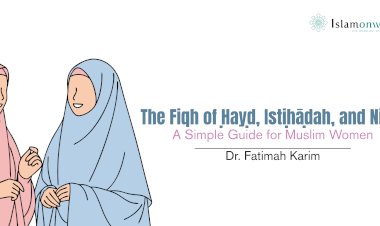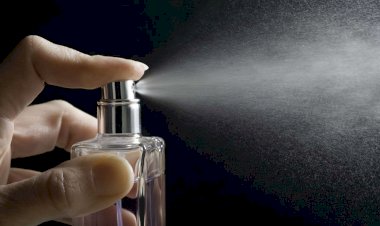Cosmetic Surgery: Reviewing from an Islamic Perspective
Introduction
The goal of reconstructive surgery, which is primarily focused on restoring the function of the human body following an injury, congenital defect,[i] or disease, is different from cosmetic surgery, which is focused on improving people's appearance without regard to an underlying medical condition. The ethical issues raised by the practice of plastic surgery are growing in importance. Hence, this contemporary issue has been one of the hot issues debated by Islamic scholars around the world. As a guiding principle in Islamic law, Maqasid Shariah emphasizes the value of upholding human dignity, avoiding harm, and fostering well-being.
Maqasid Shariah and Plastic Surgery
Islam is a complete way of living (syumul) and it encompasses the whole life; this world (dunya) and the hereafter (akhirat). Maqasid Shariah asserts Islam is protective towards their followers' welfare[ii] as it includes the preservation of life, protection of religion, preservation of intellect, protection of property, and the preservation of lineage. Moreover, Maqasid Shariah strives to advance justice, welfare, and well-being in society and emphasizes the importance of the intention behind a decision or law.
In the field of plastic surgery, Maqasid Shariah plays an important role in providing guidelines and ethical considerations for practitioners. For instance, assessing the ethical limits of cosmetic, plastic, and reconstructive surgery requires consideration of two things; the preservation of life[iii] and the avoidance of injury.[iv] Additionally, the maqasid shariah has been used as a framework for determining the suitability of plastic surgery procedures and ensuring that they adhere to Islamic values and principles. Hence, when scholars issue a fatwa to decide between maslahah (public interest) and mafsadah (evil) or to determine the level of necessity of a specific operation, they have to see things via the prism of Maqasid Shariah.
Maqasid Shariah and Ethical Considerations in Plastic Surgery
Cosmetic and plastic surgery has been divided into three levels by contemporary scholars; essential (darurah), necessity (hajah) and complementary (tahsinah). Procedures categorized as darurah and hajah are surgeries performed with the stated purpose of either saving a patient's life, treating a patient, or restoring the normal functions (or appearance) of a defective body part. On the other hand, tahsinah types of surgeries are procedures performed solely for physical beautification with no medical justification whatsoever. This means that in the context of plastic surgery, surgeons must put their patient’s health and safety above any beauty objectives.
Before performing any operation, there are several ethical considerations that were highlighted to help doctors and patients. Some of them are as follows: not assimilating (tashabbuh) with transgressors, not assimilating with non-muslims, not leading to gender confusion (men resemble women and vice versa), not involving any element of fraud, adhering to the concept of embellishment in Islam, not leading to graver harm, observing the ruling of awrah during the treatment process, having a high success rate, getting patient consent and possessing adequate qualities by healthcare practitioners.[v] Surgeons have to evaluate each patient's medical history, consider the risks and advantages of the procedure, and make sure the patient is completely informed about any potential side effects.
Related Fatwas
There are several fatwas related to issues of cosmetic, plastic and constructive surgery. The majority of fatwas institutions forbid tahsinah types of surgeries for mere physical beautification. On the other hand, there was one fatwa that divides the tahsinah into two categories; permissible tahsinah-category operations (the restoration of normal functions of a defective part of human body) and prohibited tahsinah-level procedures.[vi] But, this differs only in their classification of the levels of necessity (awlawiyyat), as it led to the same conclusion as others.
There are four types of dental beautification; wearing dental braces, dental gold crowning, teeth realignment, and denture restoration. All four of these procedures have been stated as permissible according to the hadith which encouraged Muslims to seek treatment if affiliated with a disease. However, the procedure of installing the dental braces must be performed by a qualified dentist. Furthermore, this is not a change to God’s creation, rather it is based on the Islamic jurisprudential maxim of “any harm must be removed”.[vii] For the dental gold crowning, the issue was related to muslim men, in which it is not permissible for them to have gold teeth or braces the teeth with gold. Silver may be used to cover the teeth instead of gold due to the original law of using gold (for men) is prohibited[viii], whether as an adornment or for medicinal purposes, except in cases of necessity. In the case of women, if it is customary for women to wear gold teeth, there is nothing wrong with it, and it is allowed in Islam as long as it does not constitute extravagance.[ix] Finally, it can be concluded that dental beautification for medical treatment or eliminating sources of physical and emotional distress is permitted. On the other hand, procedures or treatments carried out solely for the sake of superficial beautification are prohibited as they are included in the definition of taghyir khalqillah,[x] which is strictly forbidden by Islamic law as referred to hadiths (rulings) recounting how the Prophet ‘cursed’ women who changed their appearance by tattoos, plucking eyebrows and splitting teeth as they were changing God’s creation.
Next, vaginal reconstructive or tightening surgery which is a type of surgical procedure that is performed to repair or reconstruct the vaginal area. It is permissible for women to undergo this surgery with the intention to please the husband, provided that the case has exceeded the limit of the normal case of a woman in the same condition. So, a wider of vaginal due to repeated childbirth or old age, then it is impermissible to undergo the surgery as it is not considered as necessary in Shariah.[xi] The fatwas also forbid the surgery if there is a significant chance that the operations might not succeed. However, if there is no imminent threat to the life of the patient, it is acceptable to have vaginal reconstructive surgery to restore the pre-labour vaginal condition. The permission is granted in order to ensure patients' maslahah. In order to proceed with vaginal reconstructive surgery, one of the forms of maslahah that should be considered to proceed is boosting the wife’s self-assurance to cater to her spouse's needs, as well as the husband’s sexual satisfaction.
Last but not least, the eyebrows are shaved for surgical purposes. According to Prophet hadiths, it is strictly prohibited to pluck the eyebrows.[xii] However, the fatwas said that permitted women to shave their eyebrows for medical reasons based on the jurisprudence maxims; the existence of harm necessitates the loosening of restrictions and removing harm.[xiii] Hence, there are two obligatory conditions that should be followed; the absence of any other options aside from shaving one’s eyebrows and the absence of consequent harm arising out of the shaving of the eyebrows.
Endnotes
[i] Chamsi-Pasha, H., Albar, M. A., & Chamsi-Pasha, M. (2020). “Plastic Surgery in daily practice: Islamic Perspective.” Journal of the British Islamic Medical Association, 4(2). https://www.researchgate.net/publication/341542847_J_BIMA_Plastic_Surgery_in_daily_practice_Islamic_Perspective.
[ii] Auda, J. (2008). “Maqasid Al-Shariah as philosophy of Islamic law: A systems approach.” The International Institute of Islamic Thought. https://www.muslim-library.com/dl/books/English_Maqasid_alShariah_as_Philosophy_of_Islamic_Law_A_Systems_Approach.pdf.
[iii] Chamsi-Pasha et al. “Plastic Surgery in daily practice: Islamic Perspective,” 1-5.
[iv] Hamdan, M. N. et al. (2021). “The Application of Maqasid-Oriented Approach in Islamic Bioethics: A Case Study on Fatwa Related to Cosmetic, Plastic and Reconstructive Surgery.” IIUM Medical Journal Malaysia, 20(1), 71-81. https://doi.org/10.31436/imjm.v20i1.1781.
[v] Hamdan, M. N. et al. (2021). “The Application of Maqasid-Oriented Approach.” 71-8.
[vi] Hamdan, M. N. et al. (2021). “The Application of Maqasid-Oriented Approach.” 71-81.
[vii] Ali Jumaah Muhammad. “Taqwim al-Asnan,” Fatwa darul Ifta’, May 27, 2023, https://www.dar-alifta.org/ar/fatawa/11666/%D8%AA%D9%82%D9%88%D9%8A%D9%85-%D8%A7%D9%84%D8%A7%D8%B3%D9%86%D8%A7%D9%86.
[viii] Shaykh Waseem Khan, “Muslim man having a gold tooth,” IslamQA, May 27, 2023, https://islamqa.org/hanafi/darululoomtt/150229/muslim-man-having-a-gold-tooth/.
[ix]Shaykh muhammad saalih al-munajjid, “Ruling on using a screw made of gold for a man, to fix a tooth,” Islam Question & Answer, May 27, 2023, https://islamqa.info/en/answers/172730/ruling-on-using-a-screw-made-of-gold-for-a-man-to-fix-a-tooth
[x] Hamdan et al. “The Application of Maqasid-Oriented Approach”, 71-81.
[xi]Fatwa, “Ruling on vaginal reconstruction/tightening surgery,” Islamweb.net, May 27, 2023, https://www.islamweb.net/amp/en/fatwa/127053/.
[xii] Chamsi-Pasha et al. “Plastic Surgery in daily practice: Islamic Perspective,” 1-5.
[xiii] Hamdan et al. “The Application of Maqasid-Oriented Approach,” 71-81.
References
Ali Jumaah Muhammad. “Taqwim al-Asnan,” Fatwa darul Ifta’, May 27, 2023, https://www.dar-alifta.org/ar/fatawa/11666/%D8%AA%D9%82%D9%88%D9%8A%D9%85-%D8%A7%D9%84%D8%A7%D8%B3%D9%86%D8%A7%D9%86
Auda, J. (2008). Maqasid Al-Shariah as philosophy of Islamic law: A systems approach. The International Institute of Islamic Thought. https://www.muslim-library.com/dl/books/English_Maqasid_alShariah_as_Philosophy_of_Islamic_Law_A_Systems_Approach.pdf
Chamsi-Pasha, H., Albar, M. A., & Chamsi-Pasha, M. (2020). Plastic Surgery in daily practice: Islamic Perspective. Journal of the British Islamic Medical Association, 4(2). https://www.researchgate.net/publication/341542847_J_BIMA_Plastic_Surgery_in_daily_practice_Islamic_Perspective
Chamsi-Pasha, H., Albar, M. A., & Chamsi-Pasha, M. (2022). Comparative Study between Islamic and Western Bioethics: The Principle of Autonomy. Journal of the British Islamic Medical Association, 11(4), 4-15. https://www.jbima.com/wp-content/uploads/2022/09/Merge-ResultAug22-1.pdf
Hamdan, M. N., Anuar. M., Aminudin. H., Hanani. N. N., Faiz. M., Azizul. S. (2021). The Application of Maqasid-Oriented Approach in Islamic Bioethics: A Case Study on Fatwa Related to Cosmetic, Plastic and Reconstructive Surgery. IIUM Medical Journal Malaysia, 20(1), 71-81. https://doi.org/10.31436/imjm.v20i1.1781
Shaykh Muhammad Saalih al-Munajjid, “Ruling on using a screw made of gold for a man, to fix a tooth,” Islam Question & Answer, May 27, 2023, https://islamqa.info/en/answers/172730/ruling-on-using-a-screw-made-of-gold-for-a-man-to-fix-a-tooth
Shaykh Waseem Khan, “Muslim man having a gold tooth,” IslamQA, May 27, 2023, https://islamqa.org/hanafi/darululoomtt/150229/muslim-man-having-a-gold-tooth/
About the author
Fatin Shafika binti Dolmat is an Undergraduate student of the Department of Fiqh and Usul al-Fiqh at International Islamic University (IIUM), Kuala Lumpur.
Disclaimer
The views expressed in this article are the author’s own and do not necessarily mirror Islamonweb’s editorial stance.

























Leave A Comment